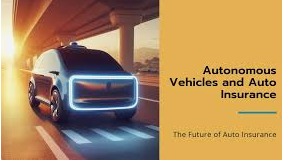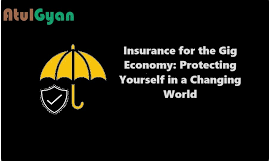Introduction
The rise of autonomous vehicles (AVs) is revolutionizing transportation, promising increased safety and convenience. However, this technological advancement also introduces new risks and challenges, particularly in the realm of insurance. This blog explores the complexities of insuring autonomous vehicles, the benefits of AV insurance, how to choose the best policies, and the future of AV insurance.
Brief Overview of Insurance and Autonomous Vehicles: Navigating New Risks
Autonomous vehicles, equipped with advanced sensors, AI, and machine learning, are designed to operate without human intervention. While they hold the potential to reduce accidents caused by human error, they also bring unique insurance challenges:
- Liability Issues: Determining fault in accidents involving AVs can be complex. Liability may shift from drivers to manufacturers or software developers.
- Cybersecurity Risks: AVs are vulnerable to hacking and cyber attacks, which can lead to accidents or data breaches.
- Regulatory Changes: The evolving legal and regulatory landscape for AVs impacts insurance policies and coverage requirements.
- Technology Failures: Malfunctions in AV technology can lead to accidents, necessitating coverage for technological failures.
- Data Privacy: AVs collect vast amounts of data, raising concerns about data privacy and the potential misuse of personal information.
How Insurance and Autonomous Vehicles: Navigating New Risks Can Help You
Insurance for autonomous vehicles provides several critical benefits:
Financial Protection
Insurance covers the cost of repairs, medical expenses, and legal fees in the event of an accident, protecting vehicle owners from significant financial losses.
Liability Coverage
With the complexity of determining fault in AV accidents, liability coverage ensures that claims are managed and compensated, regardless of whether the fault lies with the vehicle owner, manufacturer, or software developer.
Cybersecurity Safeguards
Policies can include coverage for cybersecurity incidents, protecting against losses from hacking, data breaches, and other cyber risks.
Peace of Mind
Comprehensive AV insurance provides peace of mind, knowing that you are protected against the unique risks associated with autonomous driving.
Create a Tutorial on How to Choose the Best Insurance for Autonomous Vehicles
Choosing the right insurance for an autonomous vehicle involves several steps:
Step 1: Understand the Coverage Needs
Identify the specific risks associated with autonomous vehicles, including liability, cyber threats, technology failures, and data privacy concerns.
Step 2: Research Available Policies
Look for insurance providers that offer specialized coverage for AVs. Compare the features, limits, and exclusions of different policies.
Step 3: Assess the Insurer’s Expertise
Choose an insurer with experience in the AV industry and a strong understanding of the associated risks and regulatory environment.
Step 4: Evaluate Premiums and Deductibles
Consider the cost of premiums and deductibles. Ensure the policy provides adequate coverage at a reasonable price.
Step 5: Customize Your Policy
Work with an insurance agent to tailor the policy to your specific needs. Include necessary riders for cybersecurity, liability, and technology coverage.
Step 6: Review and Update Regularly
Regularly review your policy to ensure it remains relevant as technology and regulations evolve. Update coverage as needed to address new risks.
How Much Does Insurance for Autonomous Vehicles Cost?
The cost of insuring an autonomous vehicle varies based on several factors:
- Vehicle Value: Higher-value vehicles typically have higher premiums.
- Technology Features: Advanced technology and safety features can impact premium costs, sometimes reducing them due to lower accident risk.
- Coverage Limits: Higher coverage limits result in higher premiums.
- Usage Patterns: The amount and type of vehicle usage can influence insurance costs. Commercial use may incur higher premiums than personal use.
- Location: Insurance costs can vary based on location due to factors like traffic density, accident rates, and local regulations.
On average, insurance for autonomous vehicles can range from $1,000 to $3,000 annually, depending on the factors mentioned above. Specialized coverage for cyber risks or technology failures may increase the premium.
Create a Comparison About Insurance and Autonomous Vehicles: Navigating New Risks
Here’s a comparison of key aspects of AV insurance:
| Coverage Type | Description | Typical Cost | Best For |
|---|---|---|---|
| Liability Insurance | Covers damages to others in an accident involving your AV | $500 – $1,500/year | All AV owners |
| Cybersecurity Insurance | Protects against losses from hacking and cyber attacks | $200 – $800/year | AV owners concerned about cyber risks |
| Comprehensive Insurance | Covers damage to your AV from non-collision incidents | $300 – $1,200/year | Owners of high-value AVs |
| Collision Insurance | Covers repairs to your AV from collision-related accidents | $400 – $1,000/year | All AV owners |
| Technology Failure Insurance | Covers accidents caused by AV technology malfunctions | $500 – $1,500/year | Owners of AVs with advanced technology |
Benefits of Insurance for Autonomous Vehicles: Navigating New Risks
Insurance for autonomous vehicles offers numerous benefits:
- Financial Security: Provides coverage for repair costs, medical expenses, and legal fees, protecting against financial losses.
- Liability Protection: Ensures that claims are managed and compensated, regardless of fault in AV accidents.
- Cybersecurity Coverage: Protects against losses from cyber incidents, including hacking and data breaches.
- Technology Risk Mitigation: Covers accidents caused by AV technology failures, ensuring repairs and legal costs are covered.
- Regulatory Compliance: Helps ensure compliance with evolving AV insurance regulations and requirements.
- Peace of Mind: Provides assurance that you are protected against the unique risks associated with autonomous driving.
Conclusion
The advent of autonomous vehicles brings new challenges and opportunities in the realm of insurance. Understanding the unique risks associated with AVs and choosing the right insurance coverage is crucial for protecting yourself and your investment. By assessing your coverage needs, researching policies, and regularly reviewing your insurance, you can navigate the complexities of AV insurance with confidence. As technology and regulations evolve, staying informed and proactive will ensure that you are always adequately protected.




Leave a Comment